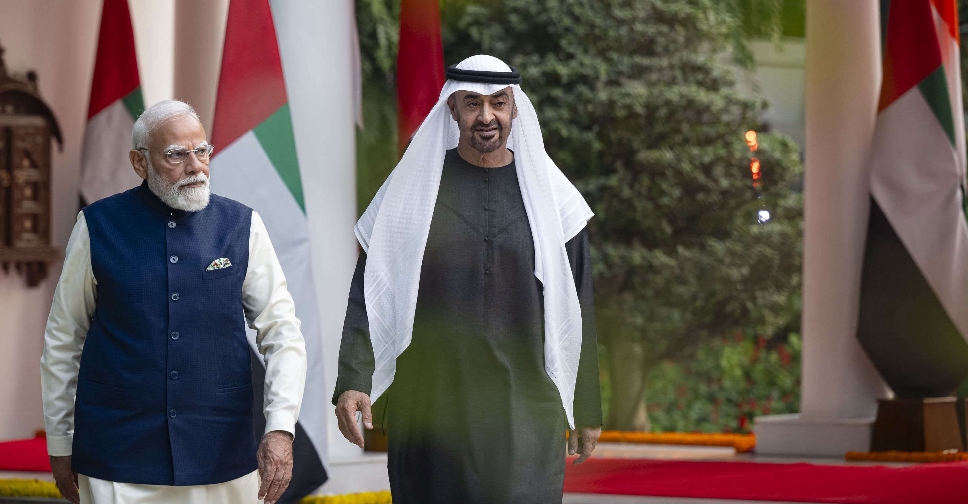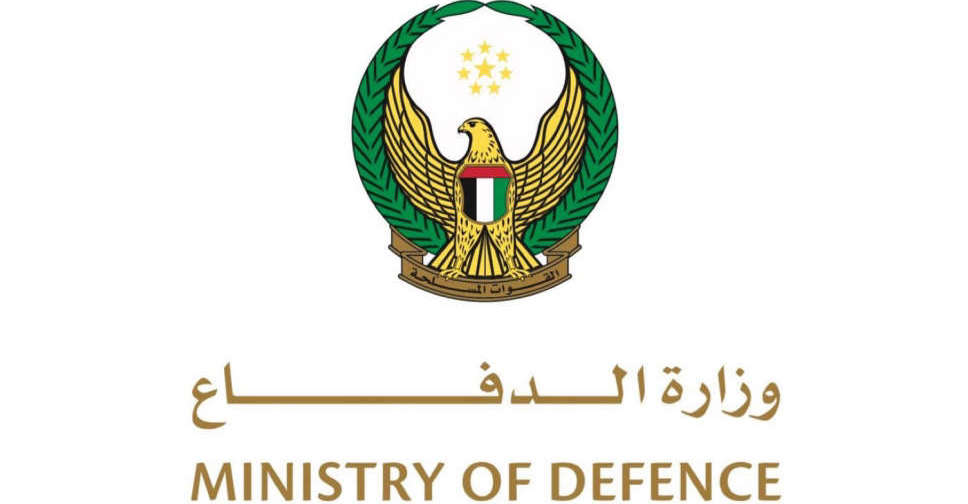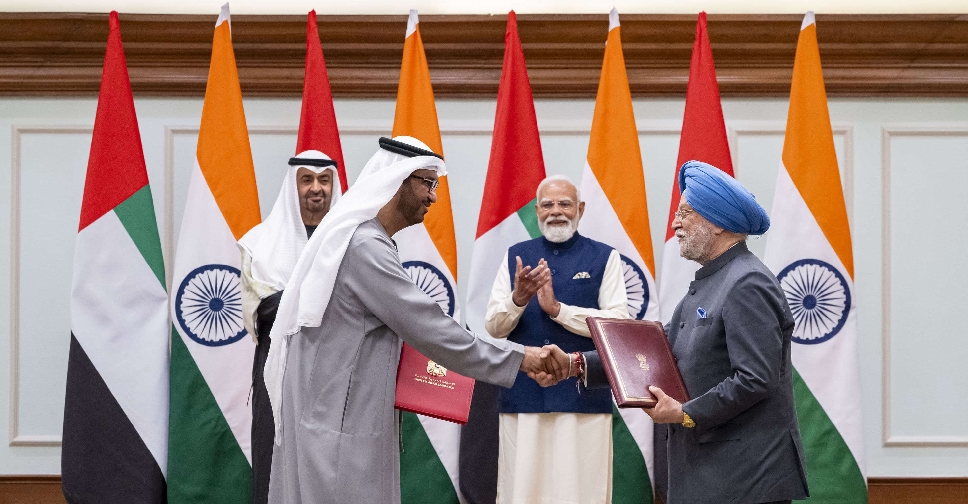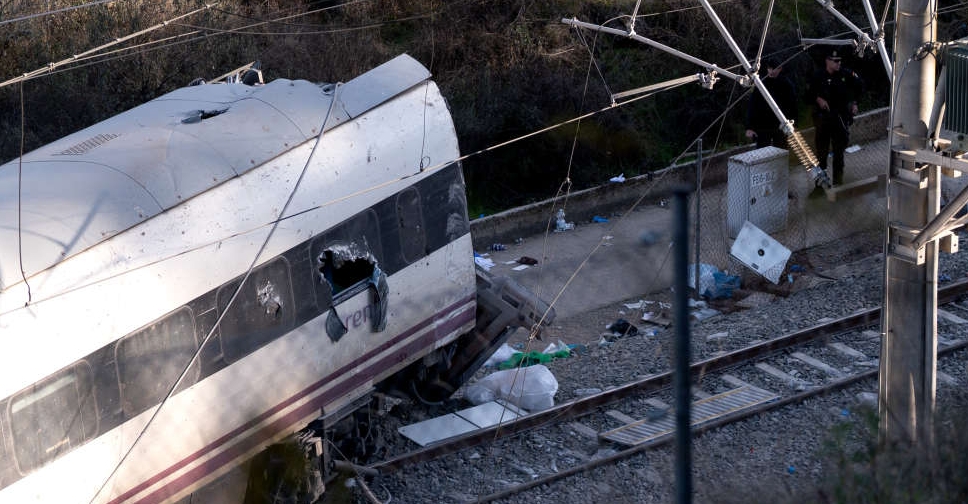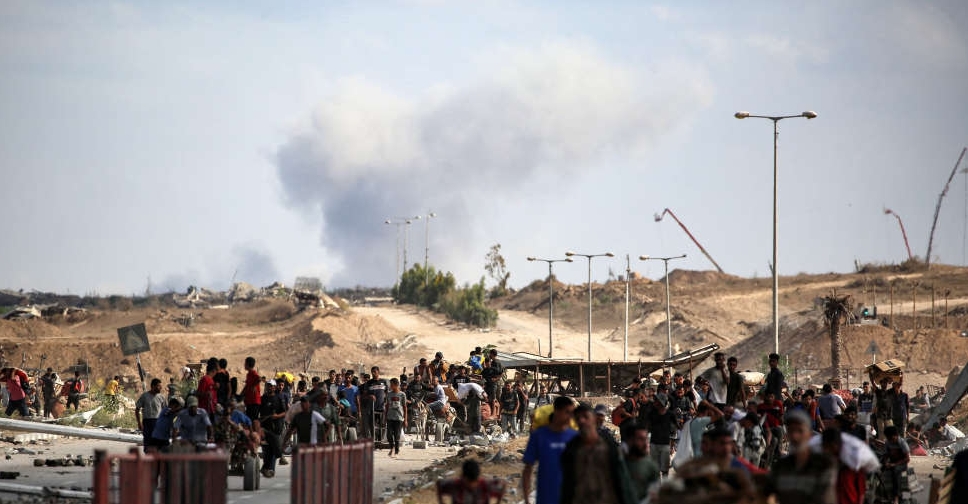
Delegations from Israel and Hamas began indirect negotiations in Egypt on Monday that the US hopes will bring a halt to the war in Gaza, facing contentious issues such as demands that Israel pull out of the enclave and Hamas to disarm.
Israel and Hamas have both endorsed the overall principles behind US President Donald Trump's plan, under which fighting would cease, hostages go free and aid pour into Gaza, the closest they have come to an end to fighting.
The plan also has the backing of Arab and Western states. Trump has called for negotiations to take place swiftly towards a final deal, in what Washington hails as the closest the sides have yet come to ending the fighting.
"I am told that the first phase should be completed this week, and I am asking everyone to MOVE FAST," Trump said in a social media post.
But both sides are seeking clarifications of crucial details, including over issues that have wrecked all previous attempts to end the war and could defy any quick resolution.
Trump has told Israel to suspend its bombing of Gaza for the talks. Gaza residents said Israel had scaled back its offensive substantially, although it had not halted it altogether.
Gaza health authorities reported 19 people killed by Israeli strikes in the past 24 hours, around a third the typical daily toll of recent weeks when Israel has been mounting one of its biggest offensives of the war, an all-out assault on Gaza City.
Egyptian state TV reported that the talks had begun at the Red Sea resort of Sharm El Sheikh.
The talks commenced on the eve of the second anniversary of the Hamas attack on Israel that triggered the war, when fighters killed 1,200 people and took 251 hostages, the deadliest day for Jews since the Holocaust.
Israel's retaliatory military campaign has killed more than 67,000 Palestinians and left the majority of 2.2 million Gazans homeless and hungry in the rubble of the enclave destroyed by relentless bombardment.
Egyptian sources said Hamas was seeking clarification of several details, including guarantees that Israel would follow through with promises to withdraw its troops from Gaza once the group gives up its leverage by freeing hostages.
With Israeli forces blasting their way through Gaza City and flattening neighbourhoods as they advance, Gaza residents say a ceasefire now is their last hope that the enclave will emerge habitable.
"If there is a deal, then we survive. If there isn't, it is like we have been sentenced to death," said Gharam Mohammad, 20, displaced along with her family in central Gaza.
Inside Israel there is clamour for an end to the war to bring home hostages, although right-wing members of Prime Minister Benjamin Netanyahu's cabinet oppose any halt to fighting.
Though Trump says he wants a deal quickly, an official briefed on the negotiations, speaking on condition of anonymity, said he expected the round of talks kicking off on Monday would require at least a few days.
An official involved in ceasefire planning and a Palestinian source said Trump's deadline to send all hostages back within 72 hours could be impossible to meet in the case of bodies of dead hostages, some of which would need to be located and recovered from burial sites scattered across the battlefield.
A Palestinian official close to the talks was sceptical about prospects of a breakthrough given deep mutual mistrust, saying Hamas and other Palestinian factions were worried that Israel might ditch negotiations once it recovered the hostages.
The Israeli delegation includes officials from spy agencies Mossad and Shin Bet, Netanyahu's foreign policy adviser Ophir Falk and hostages coordinator Gal Hirsch.
Israel's chief negotiator, Strategic Affairs Minister Ron Dermer, was expected to join later this week, pending developments in the negotiations, according to three Israeli officials.
The Hamas delegation is led by the group's exiled Gaza leader, Khalil Al-Hayya, who survived an Israeli airstrike that killed his son in Doha, the Qatari capital, a month ago.
Negotiators from Hamas will seek clarity on the mechanism to achieve a swap of remaining hostages - both alive and dead - for Palestinian prisoners held in Israel, as well as an Israeli military withdrawal from Gaza and a ceasefire, according to a statement put out by the group late on Sunday.
A thorny issue is likely to be the Israeli demand, echoed in Trump's plan, that Hamas disarm, a Hamas source told Reuters. The group has insisted it will not disarm unless Israel ends its occupation and a Palestinian state is created.
On Monday, Israel deported scores of activists it detained last week from a flotilla attempting to bring aid to Gaza, including Swedish climate campaigner Greta Thunberg.

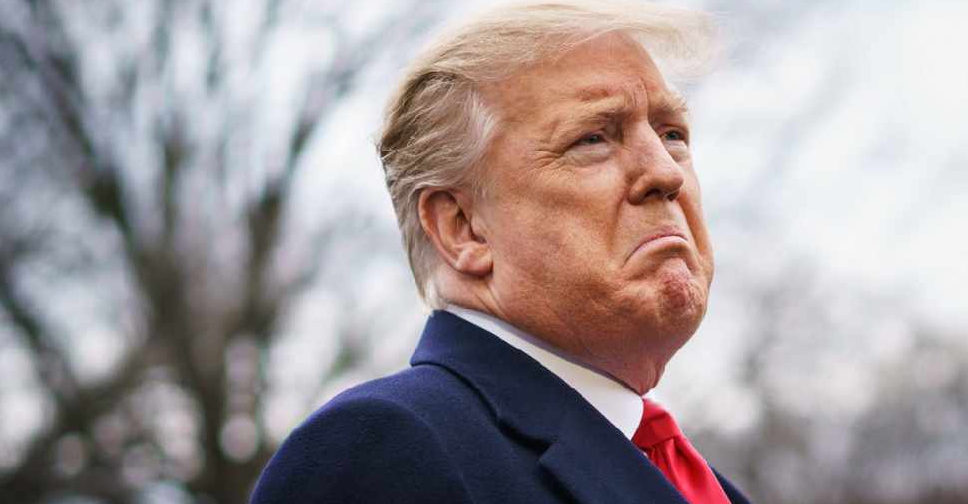 Trump links Greenland threat to Nobel Peace Prize snub, EU prepares to retaliate
Trump links Greenland threat to Nobel Peace Prize snub, EU prepares to retaliate
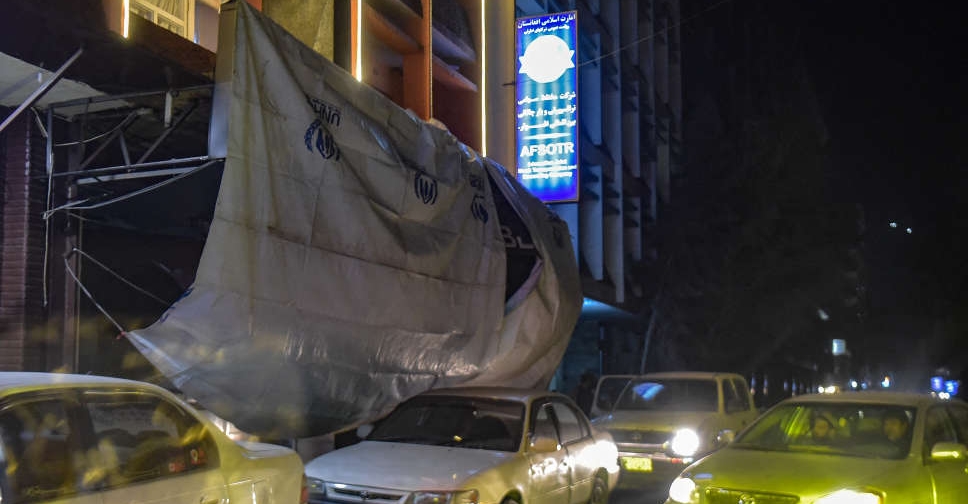 Blast kills seven at Chinese-run restaurant in Afghan capital
Blast kills seven at Chinese-run restaurant in Afghan capital
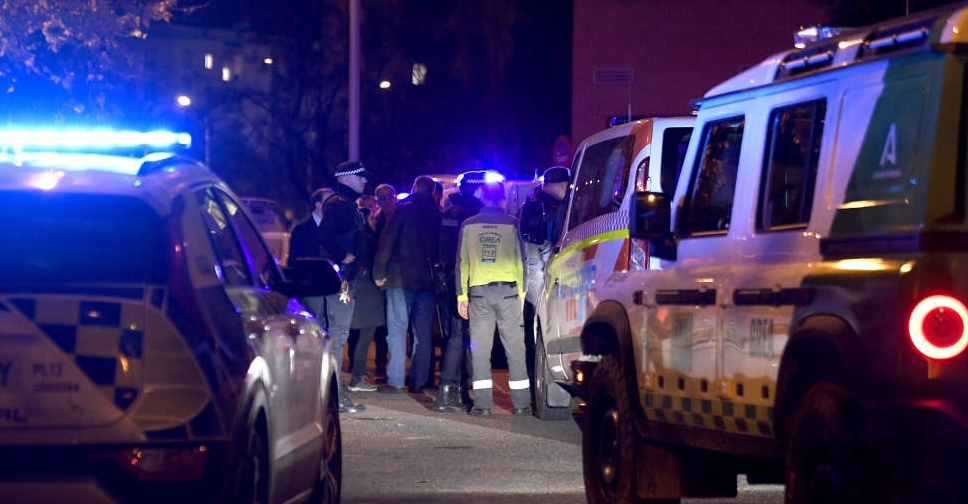 At least 43 missing, 40 dead in Spain after high-speed train collision
At least 43 missing, 40 dead in Spain after high-speed train collision
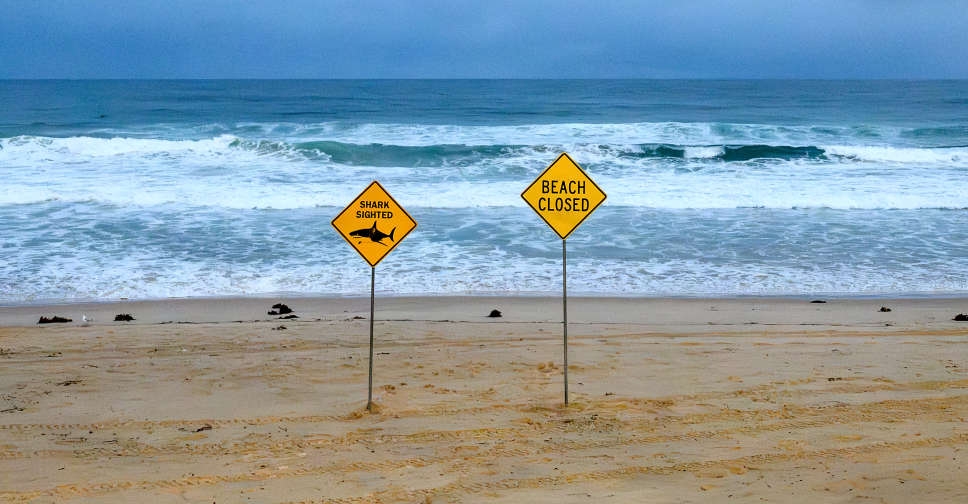 Australia shuts dozens of east coast beaches after shark attacks
Australia shuts dozens of east coast beaches after shark attacks
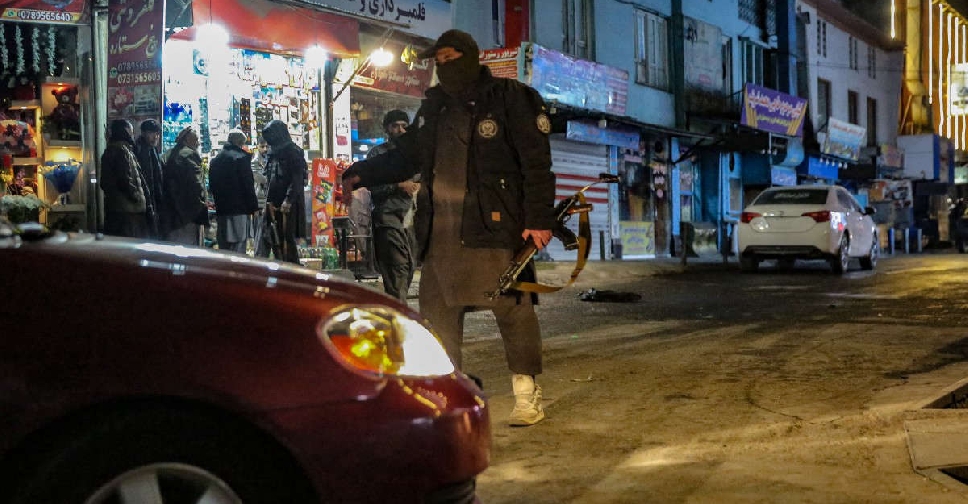 Blast kills seven at Chinese-run restaurant in Kabul
Blast kills seven at Chinese-run restaurant in Kabul
